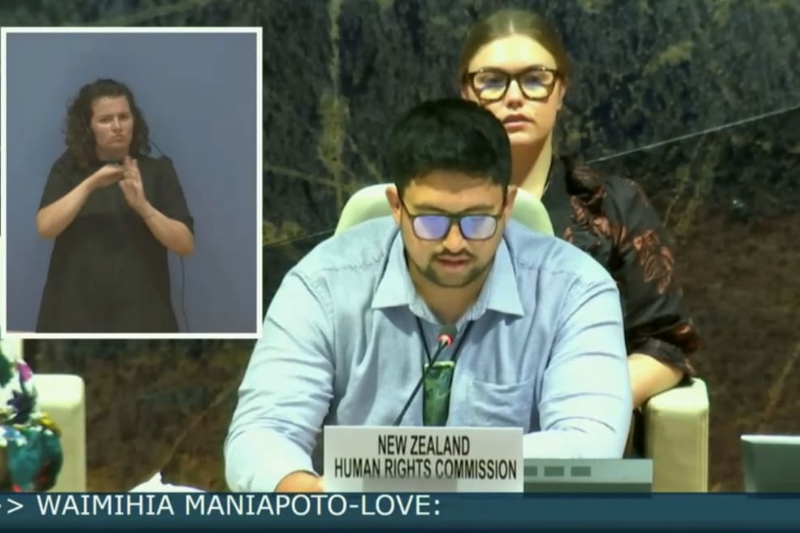
inactivity and stalled progress new zealand gets mixed report card on indigenous rights
New Zealand has been hurt by a mixed report card, which was filed by the Human Rights Commission to the United Nations, on the country’s commitment to indigenous rights.
The Commission’s Waimihia Maniapoto-Love told a UN expert group in Geneva that there have been periods of good progress towards tino rangatira tanga, and periods of inactivity. He acknowledged that the partnership process was commendable, and considerable efforts were made to ensure that it opened collaboratively and equitably.
However, Maniapoto-Love said the action plan has been effectively shelved for now as the government postponed its completion. He believes international oversight will pressure the government to resume its work on the draft plan. “We believe there is continued value in external, international oversight, to pressure New Zealand to maintain its work on implementing the Declaration.”
Keep Reading
The Commission pointed out that the New Zealand Parliament passed legislation in December 2022 to remove Wairarap Moana Incorporation’s rights to seek the return of their lands, territories, and resources.
Rongomau Taketake Claire Charters added that this occurred without Wairarapa Moana’s consent, despite their right to seek return as per the Waitangi Tribunal and Supreme Court. She said such actions contravene New Zealand’s founding constitutional agreement “Te Tiriti o Waitangi” fundamental human rights, and Indigenous People’s rights under the UN Declaration on the Rights of Indigenous Peoples. “It highlights the human rights breaches that can occur when human rights are not included in higher law that can bind the legislature.”
The Commission also brought forth calls by the National Iwi Chairs Forum for states to formally repudiate the doctrine of discovery. The doctrine states that upon the arrival in new territories, European nations automatically acquired sovereignty over the Indigenous Peoples and legal rights to their lands. The Crown in Aotearoa proclaimed its sovereignty through a combination of direct references to this very doctrine, and an alleged cession of sovereignty by Maori under Te Tiriti o Waitangi.
Meanwhile, the New Zealand government remains committed to ensuring Indigenous People in Aotearoa are able to enjoy the fundamental rights and freedoms in the Declaration.









